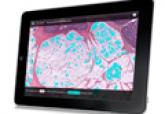For Residents

Learning Dermatopathology in the Digital Age
In recent years, advances in technology have allowed the study of pathology to transition into the digital realm. Histologic sections can now be...
Kelly K. Park, MD, MSL
From the Division of Dermatology, Loyola University Medical Center, Maywood, Illinois.
The author reports no conflict of interest.
Correspondence: Kelly K. Park, MD, MSL, Loyola University Medical Center, 2160 S First Ave, Maywood, IL 60153 (kyunghwamd@gmail.com).

Dermatology/Rheumatology
The dermatology/rheumatology fellowship offered by Brigham and Women’s Hospital is a 1-year program that focuses on the management of connective-tissue diseases in a multidisciplinary fashion with rheumatology.
Advanced Medical Dermatology/Complex Medical Dermatology
Several programs offer fellowships in medical dermatology under different titles but with a similar curriculum and goal: to foster dermatologists interested in careers as academic medical dermatologists or as future clinician scientists by means of specialized training and mentorship in complex medical and dermatological issues in the outpatient and inpatient settings. The 2-year program at New York University School of Medicine (New York, New York) also gives fellows the opportunity to earn a master of science in clinical investigation degree. The University of California, San Francisco, program offers protected time for career development.
Epidemiology Training Program
Fellows and residents in the University of Pennsylvania’s dermatology training program may elect to work with the Center for Clinical Epidemiology and Biostatistics and have the opportunity to earn a graduate degree (MSCE or PhD).
Contact Dermatitis and Patch Testing Fellowship
The Dermatology Department at the Cleveland Clinic (Cleveland, Ohio) offers a 1-year contact dermatitis and patch testing fellowship that includes clinical research.
Conclusion
Both traditional and nontraditional fellowship opportunities exist after dermatology residency. This guide serves as an overview of the training programs in dermatopathology, pediatric dermatology, micrographic surgery and dermatologic oncology (procedural dermatology), and cosmetic dermatologic surgery, as well as the fellowships offered at certain institutions for those interested in more specific subspecialties or academia.

In recent years, advances in technology have allowed the study of pathology to transition into the digital realm. Histologic sections can now be...

Jean L. Bolognia, MD, fulfills an important role in educating dermatologists in all phases of their careers.

Residency is a time when we set a foundation for how we will practice dermatology in the future. Perfecting good injection technique early in one’...
